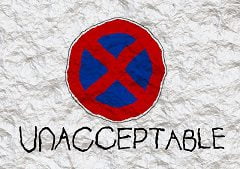Every few weeks some journalist or blogger writes a story about the evil of buzzwords, before going on to cite “genuine examples” from marketing collateral or an internal memo they have seen. Amidst the frenzy some businesses will release a quick statement via their PR team, outlining a commitment to “avoiding management speak” in future communications.

Management speak may be unacceptable, but is your business really moving to stamp it out?
But within weeks everything returns to normal, and buzzwords are circulating like flies around a cesspool once more.
The fact is your customers often expect buzzwords, technical jargon and management speech from you, wrongly equating confusing terminology with expertise. As Alastaire Allday noted on his blog, your own staff will actively use jargon in an attempt to prove their intellectual superiority over their colleagues. Buzzwords are a cultural phenomenon.
Most businesses who set out to eradicate corporate junk from their communications, make three basic mistakes:
1. Culture change
The most important part of becoming a plain English business is changing the culture. Staff need to know that management speak is not acceptable. Not in emails, not in speeches, not in presentations and definitely not in customer-facing text.
I cannot help you with this though. Culture change comes from the top of your organisation, not freelance copywriters.
2. Be explicit with your copywriter
Copywriters take their lead from you. If they review your existing marketing materials and website to get an idea of house style, what will they find? If your existing content is stuffed with management speak, you can be reasonably sure their work will be similarly jargon-filled.
Unless you instruct them otherwise.
If you want plain English copy, be explicit in the project brief. You could even introduce a penalty clause in the project agreement, docking a portion of the fee for every tired cliché they use.
3. Forget word limits
Meaty, interesting articles need some length to lend gravity. However an artificially imposed word limit is not the key to great web content.
To explain, I’ll let you into a copywriting secret. When a writer tackles a project, they draft an outline and then fill in the blanks to create a great article. But what happens if they are 500 words short of the specified 2000 requested? A good copywriter asks the client if they are happy to accept a more compact version (with a pro rata discount of course). More often than not however, people become blinded by word counts and insist that the article is extended accordingly.
At this point the copywriter needs to pad content, and management speak provides a great way to ‘stuff’ the text and increase length. It also means that a once-great article quickly becomes a mess, with clarity often becoming the first victim.
If you hire a professional freelance copywriter, you are paying for their expertise as much as their way with words. Sometimes you can even trust their directions, reducing the reliance of buzzwords in the process.
For more help and advice about creating compelling web content that communicates, rather than confuses, drop me a line.








































